COVID-19
Downtown Ottawa resident surprised when he meets the protestors he was warned about
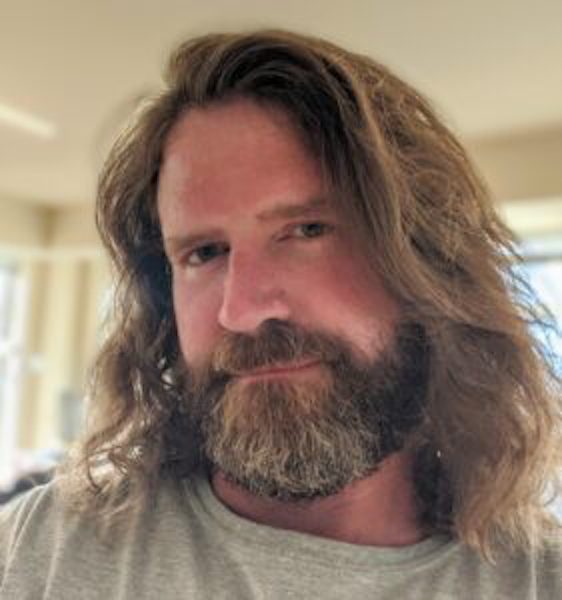
From maybury.ca
A night with the untouchables
I live in downtown Ottawa, right in the middle of the trucker convoy protest. They are literally camped out below my bedroom window. My new neighbours moved in on Friday and they seem determined to stay. I have read a lot about what my new neighbours are supposedly like, mostly from reporters and columnists who write from distant vantage points somewhere in the media heartland of Canada. Apparently the people who inhabit the patch of asphalt next to my bedroom are white supremacists, racists, hatemongers, pseudo-Trumpian grifters, and even QAnon-style nutters. I have a perfect view down Kent Street – the absolute ground zero of the convoy. In the morning, I see some protesters emerge from their trucks to stretch their legs, but mostly throughout the day they remain in their cabs honking their horns. At night I see small groups huddled in quiet conversations in their new found companionship. There is no honking at night. What I haven’t noticed, not even once, are reporters from any of Canada’s news agencies walking among the trucks to find out who these people are. So last night, I decided to do just that – I introduced myself to my new neighbours.

At 10pm I started my walk along – and in – Kent Street. I felt nervous. Would these people shout at me? My clothes, my demeanour, even the way I walk screamed that I’m an outsider. All the trucks were aglow in the late evening mist, idling to maintain warmth, but all with ominously dark interiors. Standing in the middle of the convoy, I felt completely alone as though these giant monsters weren’t piloted by people but were instead autonomous transformer robots from some science fiction universe that had gone into recharging mode for the night. As I moved along I started to notice smatterings of people grouped together between the cabs sharing cigarettes or enjoying light laughs. I kept quiet and moved on. Nearby, I spotted a heavy duty pickup truck, and seeing the silhouette of a person in the driver’s seat, I waved. A young man, probably in his mid 20s, rolled down the window, said hello and I introduced myself. His girlfriend was reclined against the passenger side door with a pillow to prop her up as she watched a movie on her phone. I could easily tell it’s been an uncomfortable few nights. I asked how they felt and I told them I lived across the street. Immediate surprise washed over the young man’s face. He said, “You must hate us. But no one honks past 6pm!” That’s true. As someone who lives right on top of the convoy, there is no noise at night. I said, “No, I don’t hate anyone, but I wanted to find out about you.” The two were from Sudbury Ontario, having arrived on Friday with the bulk of the truckers. I ask what they hoped to achieve, and what they wanted. The young woman in the passenger seat moved forward, excited to share. They said that they didn’t want a country that forced people to get medical treatments such as vaccines. There was no hint of conspiracy theories in their conversation with me, not a hint of racist overtones or hateful demagoguery. I didn’t ask them if they had taken the vaccine, but they were adamant that they were not anti-vaxers.
The next man I ran into was standing in front of the big trucks at the head of the intersection. Past middle age and slightly rotund, he had a face that suggests a lifetime of working outdoors. I introduced myself and he told me he was from Cochrane, Ontario. He also proudly pointed out that he was the block captain who helped maintain order. I thought, oh no, he might be the one person keeping a lid on things; is it all that precarious? I delicately asked how hard his job was to keep the peace but I quickly learned that’s not really what he did. He organized the garbage collection among the cabs, put together snow removal crews to shovel the sidewalks and clear the snow that accumulates on the road. He even has a salting crew for the sidewalks. He proudly bellowed in an irrepressible laugh “We’re taking care of the roads and sidewalks better than the city.” I waved goodbye and continued to the next block.
My next encounter was with a man dressed in dark blue shop-floor coveralls. A wiry man of upper middle age, he seemed taciturn and stood a bit separated from the small crowd that formed behind his cab for a late night smoke. He hailed from the Annapolis Valley, Nova Scotia. He owned his own rig, but he only drove truck occasionally, his main job being a self-employed heavy duty mechanic. He closed his shop to drive to Ottawa, because he said, “I don’t want my new granddaughter to live in a country that would strip the livelihood from someone for not getting vaccinated.” He introduced me to the group beside us. A younger crowd, I can remember their bearded faces, from Athabasca, Alberta, and Swift Current Saskatchewan. The weather had warmed, and it began to rain slightly, but they too were excited to tell me why they came to Ottawa. They felt that they needed to stand up to a government that doesn’t understand what their lives are like. To be honest, I don’t know what their lives are like either – a group of young men who work outside all day with tools that they don’t even own. Vaccine mandates are a bridge too far for them. But again, not a hint of anti-vax conspiracy theories or deranged ideology.
I made my way back through the trucks, my next stop leading me to a man of East Indian descent in conversation with a young man from Sylvan Lake, Alberta. They told me how they were following the news of O’Toole’s departure from the Conservative leadership and that they didn’t like how in government so much power has pooled into so few hands.
The rain began to get harder; I moved quickly through the intersection to the next block. This time I waved at a driver in one of the big rigs. Through the rain it was hard to see him, but he introduced himself, an older man, he had driven up from New Brunswick to lend his support. Just behind him some young men from Gaspésie, Quebec introduced themselves to me in their best English. At that time people started to notice me – this man from Ottawa who lives across the street – just having honest conversations with the convoy. Many felt a deep sense of abuse by a powerful government and that no one thinks they matter.
Behind the crowd from Gaspésie sat a stretch van, the kind you often see associated with industrial cleaners. I could see the shadow of a man leaning out from the back as he placed a small charcoal BBQ on the sidewalk next to his vehicle. He introduced himself and told me he was from one of the reservations on Manitoulin Island. Here I was in conversation with an Indigenous man who was fiercely proud to be part of the convoy. He showed me his medicine wheel and he pointed to its colours, red, black, white, and yellow. He said there is a message of healing in there for all the human races, that we can come together because we are all human. He said, “If you ever find yourself on Manitoulin Island, come to my reserve, I would love to show you my community.” I realized that I was witnessing something profound; I don’t know how to fully express it.
As the night wore on and the rain turned to snow, those conversations repeated themselves. The man from Newfoundland with his bullmastiff, a young couple from British Columbia, the group from Winnipeg that together form what they call “Manitoba Corner ” all of them with similar stories. At Manitoba Corner a boisterous heavily tattooed man spoke to me from the cab of his dually pickup truck – a man who had a look that would have fit right in on the set of some motorcycle movie – pointed out that there are no symbols of hate in the convoy. He said, “Yes there was some clown with a Nazi flag on the weekend, and we don’t know where he’s from, but I’ll tell you what, if we see anyone with a Nazi flag or a Confederate flag, we’ll kick his fucking teeth in. No one’s a Nazi here.” Manitoba Corner all gave a shout out to that.
As I finally made my way back home, after talking to dozens of truckers into the night, I realized I met someone from every province except PEI. They all have a deep love for this country. They believe in it. They believe in Canadians. These are the people that Canada relies on to build its infrastructure, deliver its goods, and fill the ranks of its military in times of war. The overwhelming concern they have is that the vaccine mandates are creating an untouchable class of Canadians. They didn’t make high-falutin arguments from Plato’s Republic, Locke’s treatises, or Bagehot’s interpretation of Westminster parliamentary systems. Instead, they see their government willing to push a class of people outside the boundaries of society, deny them a livelihood, and deny them full membership in the most welcoming country in the world; and they said enough. Last night I learned my new neighbours are not a monstrous faceless occupying mob. They are our moral conscience reminding us – with every blow of their horns – what we should have never forgotten: We are not a country that makes an untouchable class out of our citizens.
This is a blog of mathematical thoughts and views from the perspective of a data scientist in Ottawa, Canada.
I am a reformed physicist who has undergone rehabilitation through the world of operations research and statistical science, becoming a quasi-useful member of society. In real life, I am a lead data scientist in Ottawa, Canada.
I am a passionate applied mathematician with an interest in all things stochastic. I am always looking for opportunities to transform data into useful decision insights. My rehab is ongoing!
Click here for more from David Maybury
COVID-19
The Trials of Liberty: What the Truckers Taught Canada About Power and Protest

Half the country still believes the convoy was a menace; the other half thinks it was a mirror that showed how fragile our freedoms had become.
This Thanksgiving I am grateful for many things. The truckers who stood up to injustice are among them.
When the first rigs rolled toward Ottawa in January 2022, the air was sharp, but not as sharp as the mood of the men and women behind the wheels. They were not radicals. Seeing a CBC a campaign of disinformation about them begin as soon as their trek started, even when Ottawa political operatives hadn’t yet heard, I started following several of them on their social media.
They were truckers, small business owners, independent contractors, and working Canadians who had spent two years hauling the essentials that kept a paralyzed nation alive. They were the same people politicians, including Prime Minister Trudeau, had called “heroes” in 2020. By 2022, they had become “threats.”
The Freedom Convoy was born from exhaustion with naked hypocrisy. The federal government that praised them for risking exposure on the road now barred the unvaccinated from crossing borders or even earning a living. Many in provincial governments cheered Ottawa on. The same officials who flew to foreign conferences maskless or sat in private terraces to dine, let’s recall, still forced toddlers to wear masks in daycare. Public servants worked from home while police fined citizens for walking in parks.
These contradictions were not trivial; they were models of tyrannical rule. They told ordinary people that rules were for the ruled, not for rulers.
By late 2021, Canada’s pandemic response had hardened into a hysterical moral regime. Compliance became a measure of virtue, not prudence. Citizens who questioned the mandates were mocked as conspiracy theorists. Those who questioned vaccine efficacy were treated as fools; those who refused vaccination were treated as contagious heretics. Even science was no longer scientific. When data showed that vaccines did not prevent transmission, officials changed definitions instead of policies. The regime confused authority with truth. One former provincial premier just this week was still hailing the miracle of “life-saving” COVID vaccines.
For truckers, the breaking point came with the federal vaccine mandate for cross-border transport. Many had already complied with provincial rules and workplace testing. Others had recovered from COVID and had natural immunity that the government refused to recognize. To them, the new rule was not about safety; it was about humiliation. It said, “Obey, or you are unfit to work.”
So they drove.
Donna Laframboise, one of the rare journalists who works for citizens instead of sponsors, described the convoy in her book Thank You, Truckers! with gratitude and awe. She saw not a mob but a moral statement. She showcased for us Canadians who refused to live by lies. Their horns announced what polite society whispered: the emergency had become a creepy habit, and the habit had become a tool of control.
When the convoy reached Ottawa, it was messy, loud, and human. There was singing, prayer, laughter, dancing and some foolishness, but also remarkable discipline. For three weeks, amid frigid temperatures and rising tension, there were no riots, no arsons, no looting. In a country that once prized civility, that should have earned respect.
Instead, it attracted the media’s and government’s contempt.
The Trudeau government, rattled by its own public failures, sprung to portray the protest as a national security threat. Ministers invoked language fit for wartime. The Prime Minister, who had initially fled the city claiming to have tested positive, returned to declare that Canadians were under siege by “racists” and “misogynists.” The accusations were as reckless as they were false. The government’s real grievance was not chaos but defiance.
Then came the Emergencies Act. Designed for war, invasion, or insurrection, it was now deployed against citizens with flags and thermoses. Bank accounts were frozen without charge or trial. Insurance policies were suspended. Police weilding clubs were unleashed against unarmed citizens. The federal government did not enforce the law; it improvised it.
A faltering government declared itself the victim of its citizens. The Emergency declaration was not a reaction to danger; it was a confession of political insecurity. It exposed a leadership that could not tolerate dissent and recast obedience for peace.
Haultain Research is a reader-supported publication.
To receive new posts, express your gratitude and support our work, consider becoming a a paid subscriber.
The convoy’s organizers, who kept the protest largely peaceful, were arrested and prosecuted as though they had plotted sedition. They were charged for holding the line, not for breaking it. The state’s behaviour was vindictive, not judicial. Prosecutors went along with it, and so did courts.
In a healthy democracy, such political trials would have shaken Parliament to its core. Legislators would have demanded justification for the use of emergency powers. The press would have asked precisely which law had been broken. Citizens would have debated the limits of government in times of fear, times which seem to continue just under the radar.
Not much of that happened.
Canada’s institutions have grown timid. The press is subsidized and more subservient. The courts happily defer to the administrative state. Law enforcement has learned to follow politics before principle. Academics have been lost for about generation. Under such conditions, how can citizens object to unscientific and coercive policies? What options remain when every channel of dissent—media, science, judiciary, and law enforcement—is captured or cowed?
The convoy’s protest, let’s remember, was not the first major disruption in the Trudeau years. A year earlier, Indigenous activists blocked rail lines and highways in solidarity with Wet’suwet’en hereditary chiefs opposed to a pipeline. The blockades cost the economy millions. They were called “a national conversation.” Few arrests, no frozen accounts, no moral panic.
In 2020, Black Lives Matter marches were cheered by politicians and news anchors. Some protests were peaceful, others destructive. Yet they were treated as expressions of justice, not extremism.
Even today, pro-Hamas Palestinian demonstrations that include violence and intimidation of Jewish citizens are tolerated with a shrug. The police stand back, bring them coffee, citing “the right to protest.”
Why, then, was the Freedom Convoy treated as a crisis of state?
In a liberal democracy, protest is not rebellion. It is a civic instrument, a reminder that authority is contingent. When a government punishes peaceful protest because it disapproves of the message, it turns democracy into décor.
The trials of the convoy organizers are therefore not about law but about legitimacy. Each conviction signals that protest is permitted only when it pleases the powerful. This is the logic of every soft tyranny: it criminalizes opposition while decorating itself with the vocabulary of rights. I see this daily in Nicaragua, my native land.
The truckers’ protest revealed what the pandemic concealed. The COVID regime was unscientific and incoherent. It punished truckers who worked alone in their cabs while allowing politicians to mingle maskless at conferences. It barred unvaccinated Canadians from air travel but allowed infected citizens to cross borders with the proper paperwork. It closed playgrounds and churches while keeping liquor stores open.
These contradictions were not mistakes; they were instruments of obedience. Each absurd rule tested how much submission people would endure.
The truckers said, “Enough.” I am grateful that they did.
For that, Chris Barber (Big Red) and Tamara Lich  are still being punished. Their trials have now concluded, save for possible appeals, yet their quiet defiance remains one of the few honest moments in recent Canadian history. It showed that courage is still possible, even the state seems to forbid reason.
are still being punished. Their trials have now concluded, save for possible appeals, yet their quiet defiance remains one of the few honest moments in recent Canadian history. It showed that courage is still possible, even the state seems to forbid reason.
The government’s response revealed the opposite: that fear, once politicized, is never surrendered willingly. The state that learned to rule through emergency will not soon unlearn it. They cling to its uses still.
Canada lives with the legacy of that winter today. The trials are finished, but the divisions persist. Half the country still believes the convoy was a menace; the other half thinks it was a mirror that showed how fragile our freedoms had become.
Trudeau’s government is no more, yet the spirit of his politics lingers. He did not create the divisions by accident. He cultivated them as a strategy of control. The country that left him behind is also less free, less trusting, and less united than it was before the horns sounded in Ottawa. Carney’s government is Trudeau’s heir.
The trials and sentencing measure the distance between the Canada we imagined and the one we inhabit.
The truckers’ convoy was imperfect, yet profoundly democratic. It stood for the right of citizens to say no to a government that had forgotten how to hear them. The echo of that refusal still moves down the Trans-Canada Highway. It is the sound of liberty idling in the cold, waiting for a green light that will not soon come.
This Thanksgiving, I am grateful for the abounding love and understanding in my life. I am grateful for my spirited children and their children. I am grateful for my nonagenarian father and for my siblings. I’m grateful for the legion of aunts, uncles, cousins, nieces and nephews on all sides of the family. I am grateful for loyal friendships and for my colleagues and coworkers who share the quest for a freer country. I’m grateful to my adoptive Alberta, and Albertans, also struggling to be strong and free.
I am grateful for the Truckers, wherever they came from, for their courage.
Haultain Research is a reader-supported publication.
To receive new posts, express your gratitude and support our work, consider becoming a a paid subscriber.
COVID-19
Freedom Convoy leader Tamara Lich says ‘I am not to leave the house’ while serving sentence

From LifeSiteNews
‘I was hoping to be able to drop off and pick up my grandsons from school, but apparently that request will have to go to a judge’
Freedom Convoy leader Tamara Lich detailed her restrictive house arrest conditions, revealing she is “not” able to leave her house or even pick up her grandkids from school without permission from the state.
Lich wrote in a X post on Wednesday that this past Tuesday was her first meeting with her probation officer, whom she described as “fair and efficient,” adding that she was handed the conditions set out by the judge.
“I was hoping to be able to drop off and pick up my grandsons from school, but apparently that request will have to go to a judge under a variation application, so we’ll just leave everything as is for now,” she wrote.
Lich noted that she has another interview with her probation officer next week to “assess the level of risk I pose to re-offend.”
“It sounds like it’ll basically be a questionnaire to assess my mental state and any dangers I may pose to society,” she said.
While it is common for those on house arrest to have to ask for permission to leave their house, sometimes arrangements can be made otherwise.
On October 7, Ontario Court Justice Heather Perkins-McVey sentenced Lich and Chris Barber to 18 months’ house arrest after being convicted earlier in the year convicted of “mischief.”
Lich was given 18 months less time already spent in custody, amounting to 15 1/2 months.
As reported by LifeSiteNews, the Canadian government was hoping to put Lich in jail for no less than seven years and Barber for eight years for their roles in the 2022 protests against COVID mandates.
Interestingly, Perkins-McVey said about Lich and Barber during the sentencing, “They came with the noblest of intent and did not advocate for violence.”
Lich said that her probation officer “informed me of the consequences should I breach these conditions, and I am not to leave the house, even for the approved ‘necessities of life’ without contacting her to let her know where I’ll be and for how long,” she wrote.
“She will then provide a letter stating I have been granted permission to be out in society. I’m to have my papers on my person at all times and ready to produce should I be pulled over or seen by law enforcement out and about.”
Lich said that the probation officer did print a letter “before I left, so I could stop at the optometrist and dentist offices on my way home.”
She said that her official release date is January 21, 2027, which she said amounts to “1,799 days after my initial arrest.”
As reported by LifeSiteNews, Lich, reflecting on her recent house arrest verdict, said she has no “remorse” and will not “apologize” for leading a movement that demanded an end to all COVID mandates.
LifeSiteNews reported that Conservative Party leader Pierre Poilievre offered his thoughts on the sentencing, wishing them a “peaceful” life while stopping short of blasting the sentence as his fellow MPs did.
In early 2022, the Freedom Convoy saw thousands of Canadians from coast to coast come to Ottawa to demand an end to COVID mandates in all forms. Despite the peaceful nature of the protest, Trudeau’s government enacted the never-before-used Emergencies Act (EA) on February 14, 2022.
-

 Red Deer1 day ago
Red Deer1 day agoThe City of Red Deer’s Financial Troubles: Here Are The Candidates I Am Voting For And Why.
-

 Business21 hours ago
Business21 hours agoUN, Gates Foundation push for digital ID across 50 nations by 2028
-

 COVID-1922 hours ago
COVID-1922 hours agoThe Trials of Liberty: What the Truckers Taught Canada About Power and Protest
-
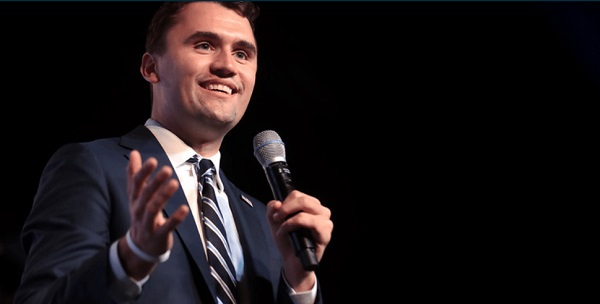
 C2C Journal21 hours ago
C2C Journal21 hours agoCharlie Kirk and the Fragility of Civic Peace
-
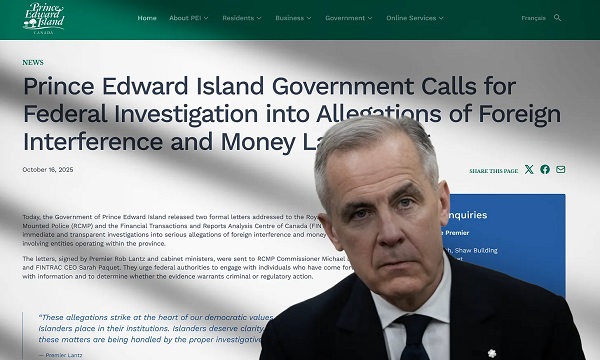
 espionage2 days ago
espionage2 days agoPEI to Ottawa: Investigate CCP Footprints—Now
-

 Business2 days ago
Business2 days agoCutting Red Tape Could Help Solve Canada’s Doctor Crisis
-
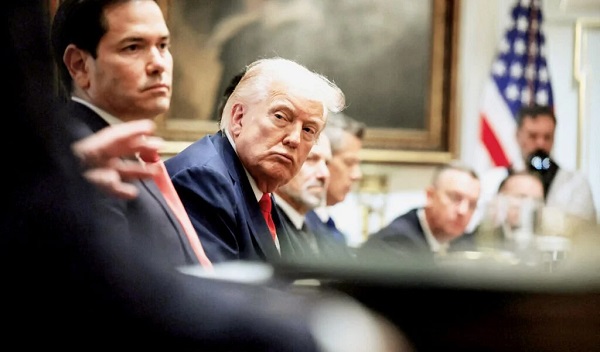
 Bruce Dowbiggin2 days ago
Bruce Dowbiggin2 days agoBrokeback President: We Can’t Quit You, Donald
-
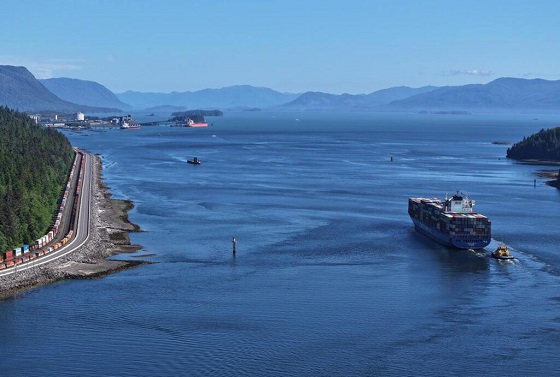
 Energy2 days ago
Energy2 days agoPrince Rupert as the Optimal Destination Port for an Alberta Crude Oil Pipeline –







